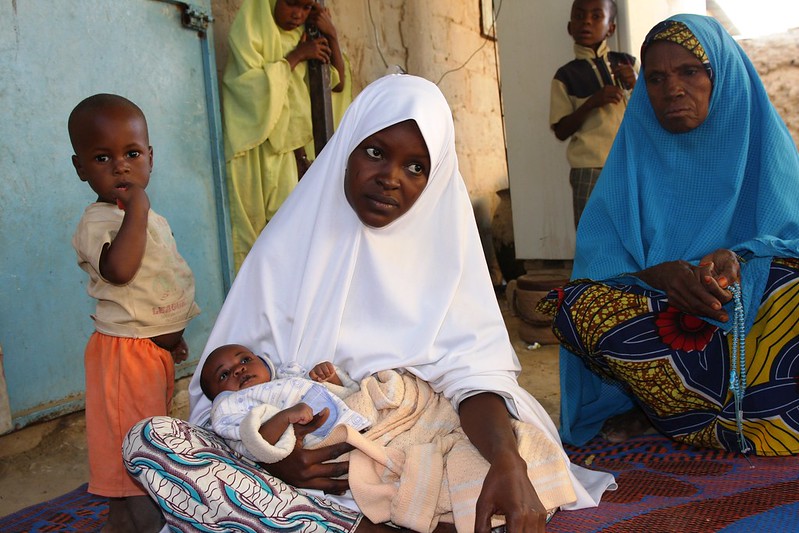Freed Boko Haram Chibok girls not allowed to heal mentally from years of rape and abuse.
 |
| Yassinou recounts that she was held captive with hundreds of other women by Boko Haram. She tells that women with children were separated from younger women without children. The latter were told by Boko Haram they had to choose between becoming wives or slaves and were led away. Yassinou managed to escape after a week from Boko Haram. |
Boko Haram freed Chibok girls were tools for making money in the USA.
Explore and Understand Africa Through Her Food and Culture
11-9-2016
According to an October 2016 BBC article, psychological dangers may await the recently freed 21 Chibok girls if they travel to the USA.

|
| Pimping the Boko Haram Freed Chibok Girls |
Some of the 57 Chibok girls who managed to escape a few hours after Boko Haram militants stormed their school in April 2014 and stole them away in trucks, are already being educated in America.
As stated by Nigerian journalist Adaobi Tricia Nwaubani “Some of them told me how pleased they are about their former classmates' release. They also considered it a good idea for the 21 girls to move to the US as they did.”
However, forgetting is one thing that these Chibok girls were not allowed to do until just a few months ago. Prior to May 2016, the support received was in exchange for telling and retelling their stories to the detriment of their mental, physical, academic and emotional wellbeing," said psychologist Somiari Demm, who provided counselling to about 10 of the Chibok girls.

|
| Allow time for healing from rape and abuse |
Demm described how the girls were subjected to constant media and other appearances for almost two years and during these public events, they seemed to be encouraged to embellish their stories of Boko Haram captivity for maximum effect. Their narratives often elicited liberal donations but the girls complained of having seen little of the funds raised.
Demm believes that what the girls really needed after their escape was anonymity "to begin the healing process". She said they needed "to understand what fully happened, and develop the appropriate coping skills as they are reintegrated into society".
"My conclusion is that the support provided to them has been tainted and their worth reduced to iPhones and iPads and a few dollars here and there," said Mrs Demm. In May 2016, seven of the girls were removed from the guardianship of the Nigerian charity that had taken them to America.
"The girls were being used as tools for making money," the Minister for Women Affairs, Aisha Alhassan, told the press after a meeting with the Chibok parents in Maiduguri.
Paul Ali, a father of one of the girls, also expressed his concerns: "From the information we are hearing, it seems they are not really studying in schools as we assumed.
"We understand that they are being used for show business… That is not what we wanted for our children."
Women and girls who were former captives of Boko Haram face marginalization and rejection by family and community members because of social and cultural norms related to sexual violence.
Most of those kidnapped have had little attention or support when released, she says.
"We have thousands of girls who are much younger, held sometimes for far longer than the Chibok girls, and they are coming back to communities where they are not wanted because of their association with Boko Haram." Dr Akilu says.
Their children are at a greater risk of rejection, abandonment and violence because of concerns they may have the "bad blood" of Boko Haram in their veins, and will therefore be a risk to their communities. There is also a growing fear that some of them were radicalized in captivity because of an increased use of female suicide bombers by the militants." Some of them are coming back pregnant and with babies, and the babies are being rejected," Dr Akilu says.
"It was very important to stay away from that subject," Reginald Braggs, assistant dean of student affairs for American University of Nigeria "because it was very painful for the students to reflect on that issue."
The 21 Chibok girls just released from more than two years in captivity may thrive in America if only their hosts realize that the girls are there to forget about their experiences, to further their education and not to become exploited by the media to make money.
Together we build awareness that boost harmony, education, and success, below are more links to articles you will find thought provoking.
- Historical African Country Name
- Top 20 Largest Countries in Africa
- How many countries does Africa have?
- Roots of Africanized Christianity Spiritual Songs
- Chocolate Processing Facts History and Recipes
- Awesome Kenyan Woman
- Land is Not For Women in Sierra Leone
- African Kente Cloth Facts
- Accra the Ghanaian Capital Ultimate Mall Experience


























